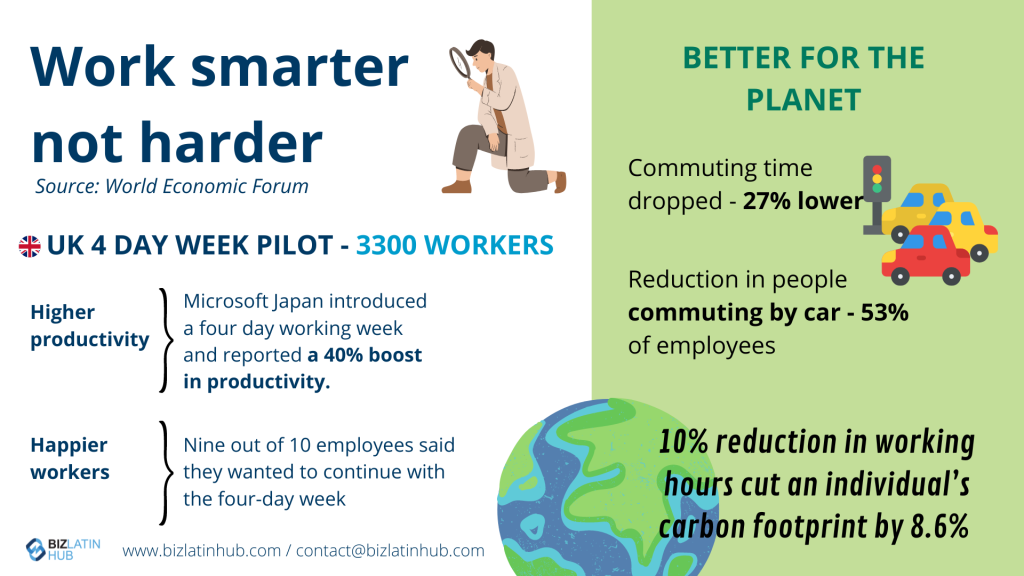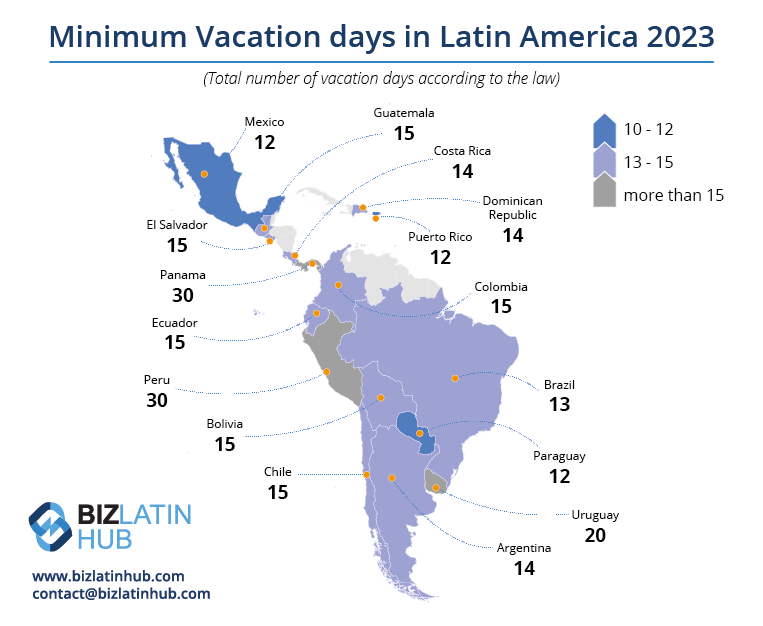Mexico’s economy is on the rise in 2023, offering numerous opportunities for businesses looking to expand or establish themselves in the region.
Mexico has made significant progress in reducing corruption and improving its investment climate in recent years, leading to a more stable and predictable economic environment.
The country boasts a young and dynamic workforce, abundant natural resources, and a strategic location that provides easy access to North and South American markets.
In late April 2023, the Mexican Congress passed a ruling to amend the Constitution and reduce the workweek from 48 to 40 hours per week. This labor reform in Mexico has not yet been passed into law but this is likely to happen in September.
This change follows a rise in the minimum wage and annual leave days for Mexican workers. In this article, we will outline the latest labor reform in Mexico, how it affects companies, and why having experienced legal representation in Mexico is essential for businesses.

What does the labor reform in Mexico mean for business?
The amendment within the labor reform in Mexico has passed in Mexico’s National Congress as of last week of April 2023.
If this labor reform in Mexico passes in the legislative session in September, it will result in a reduction of the work week from 48 to 40 hours. It would also give workers an extra day off.
This change will bring Mexico in line with the majority of OECD member nations, which also have a standard 40-hour work week.
According to the Mexico National Statistics Institute, more than 40% of Mexicans work six days a week.
“We want workers here to work to live, not live to work,” Mexican Congress Member Susana Prieto Terrazas, who introduced the proposal, told Noticias Telemundo.
“A lot of people work 10 or 12 hours daily and on top of that they take up to four hours going to work and back home… That’s not life,” she added.
This labor reform in Mexico is facing opposition from business groups who argue that it could negatively impact small and medium-sized businesses.
They contend that hiring additional employees may not be feasible for such businesses, particularly if they lack the necessary funds to do so. Furthermore, the proposed rule’s immediate implementation provides little flexibility, according to these groups.
How many hours is the work week in Mexico?
As of May 2023, Mexico’s standard work week is 48 hours. These are some of the longest work hours in the world. At present, only Argentina, Peru, Bolivia, Panama, Costa Rica, Paraguay, and Mexico have a 48-hour workweek among Latin American nations.
However, due to the new labor reform in Mexico, this will be reduced to 40 hours. The plan is to implement this change quickly once the bill has passed.
Unlike in Chile, where the official work week will be reduced by an hour a year until it reaches 40 hours in 2028.
To put these changes in perspective, Egypt has a 53-hour work week while Norway workers average 34 hours per week. In Latin America, Brazil has a 44-hour work week and Colombia has recently reduced its work week to 42 hours.
An overview of recent changes to labor reform in Mexico:
- 48 to 40 hours work week
- Increased holidays
- Minimum wage rise
Here is a summary of the leading changes to labor reform in Mexico:
48 to 40 hours work week
The official working hours will be reduced from 48 hours to 40 hours per week per year. This will lead to many Mexicans working five not six days a week.
Increased holidays
The Mexican Government passed a new regulation in December 2022 which increases the annual leave for workers. It raised the number of annual leave days from six to twelve.
Minimum wage rise
In January 2023, Mexico increased its general minimum wage from the previous $172.87 to $11.54 per day, while also raising the minimum wage in the Free Zone of the Northern Border from 260.34 pesos to 312.41 pesos, which amounts to $17.38 per day.

Work with a legal expert to understand labor reform in Mexico
Collaborating with a reliable legal representative can ensure that your business adheres to the applicable laws and regulations in Mexico, and prevent any complications with legal compliance.
Mexico is undergoing many social and economic reforms, so your business must stay on top of all the legal updates.
An experienced local legal expert can also help you avoid any cultural, financial, and legal issues a new business may face in the Mexican market.
At Biz Latin Hub, we have a team of specialists who can provide you with customized services to meet your Mexico business needs.
Our comprehensive range of legal, accounting, and back-office solutions enable us to serve as your primary contact point, helping simplify and speed up your entry into the Mexican market.
Talk to our team of local experts today about labor reform in Mexico, company formation, and how to find the top talent in the region.
If you found this article about the latest labor reforms in Mexico interesting, be sure to explore the rest of our coverage of the region. Additionally, you can learn more about our team and expert authors here.






